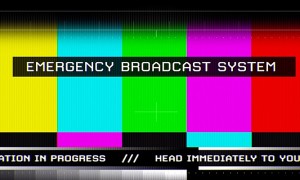Driving along the Las Vegas Strip, you will see plenty of dancing fountains and decorative waterfalls. It is easy to lose sight of the fact that you are in the middle of a desert where water management authorities remind us: “Be water smart!” That should include some understanding about well water in the area.
In the Beginning
For decades, shallow wells and springs throughout the Valley sustained homes and businesses. Population swelled, and many groundwater sources dried up by the time Colorado River water from Lake Mead was pressed into service for the Southern Nevada Water Authority (SNWA), created in 1971. Subsequently, artificial recharging of treated Colorado River water back into the system helped to restore and stabilize groundwater levels in many parts of the basin; the SNWA utilizes this groundwater during summer periods of peak demand to supplement Lake Mead, the Valley’s main water source.
Well Water Use Continues
Over 1300 pumping sites remain in operation today under one of three state-issued groundwater rights or permits managed and administered by the Office of the State Engineer. These rights or permits are categorized by the Las Vegas Valley Groundwater Management Program (GMP) as follows:
- Vested—well in existence and beneficially using groundwater from an artesian or definable aquifer before March 22, 1913, or from a percolating aquifer before March 25, 1939
- Nonrevocable—permits with a priority date before March 24, 1955. These cannot be revoked but are subject to forfeiture and abandonment per NRS 534.090.
- Revocable—permit with a priority date on or after March 24, 1955. These are subject to revocation if and when water can be furnished by an entity such as a water district or municipality.
The majority of community wells in the Valley hold revocable permits. Legislation passed in 1999, however, specifies that revocation can be enforced only if a municipal water line is within 180 feet of the permitted location and the existing well fails to such an extent that a drilling rig is necessary to restore the well’s function. After meeting the first two conditions, the Las Vegas Valley Groundwater Management Program must provide financial assistance for the well user’s cost of connecting to a municipal source.
Even if you purchased well water rights outright from the state or previous property owner, you are still limited to drawing no more than your allotment. Cracking down on non-compliance in recent years, State Engineers began to issue fines, to require returns of stolen water, and, in extreme cases, to file misdemeanor charges. This motivates homeowers to check their systems, repair leaks, and purchase increased allotments if all other measures fail—a costly solution approximating to $30,000 per acre-foot!
What about acquiring new water rights or permits? Chances of hitting the jackpot at your local casino are probably better than obtaining a permit for a Las Vegas property with no previously issued water rights. Under Amended Order 1054, the Office of the State Engineer will deny applications to appropriate water filed after March 23, 1992. Exceptions are rare.
Well Water Smart
Wells more commonly show up on half-acre properties or larger. Also, some older, small communities and outlying subdivisions may have a well system shared by all the homes. Look up permits and other water rights information on the state’s Division of Water Resources site. All Valley wells have hard water, and many in the Southeast pump warm water. If considering a vacant property, remember that an unused well can develop bacteria in the lines. Check the State Bureau of Safe Drinking Water for quality concerns, testing services, and treatments; additionally, you may consider hiring an environmental testing service for analysis and recommendations on water softeners and reverse osmosis systems. After all the regulations and environmental factors, the last word on well water still belongs to Benjamin Franklin: “When the well’s dry, we know the worth of water.”
Photo Source: Roberto Verzo http://www.flickr.com/photos/verzo/6100735795/sizes/l/in/photolist-ai6ScV-ai6Rmc-4u4vqo-851Ciz-4PM6JF-fnLsK-aNrb32-e1ecvQ-aXuXie-bnBxKa-2dqU2h-aRqXFg-bmXaWS-ag1Mbc-4THyCL-kvPJ4-btdd8d-btdd2y-7oYbaF-4aWgGq-4PRnwC-4wevTY-99UJ1c-4HMbmu-esNU9r-53bDGc-7jwTnr-2
[cf]skyword_tracking_tag[/cf]






